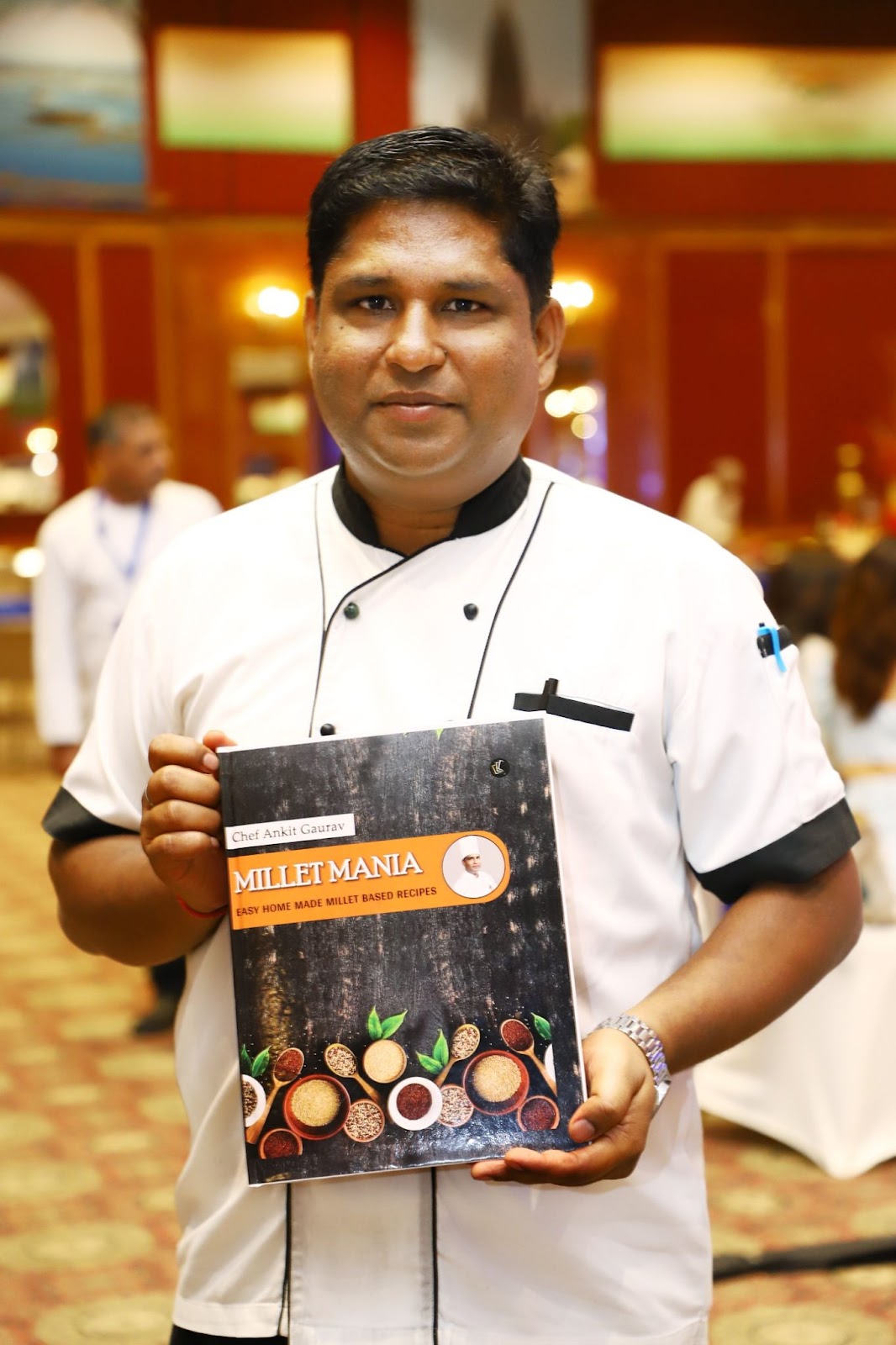From the bustling kitchens of Bihar to international culinary stages, Chef Ankit Gaurav has built a career rooted in tradition yet driven by innovation. Known for his pioneering work in plant-based cuisine and millet revival, he has been honored with awards such as the Lal Bahadur Shastri Samman and Chef of the Year – Plant-Based Cuisine. In this candid conversation, he shares his journey, philosophy, and the inspiration behind his celebrated dishes and books. Chef Ankit Gaurav is an Executive Sous Chef at Country Inn & Suites by Radisson Sahibabad.
Q: Chef Ankit, how did your culinary journey begin?
A: It started in a small kitchen, watching my mother cook with love and instinct. I was fascinated by how food could bring people together. Eventually, that curiosity turned into a passion—and then into a career.
Q: Was there a defining moment when you knew you wanted to become a chef?
A: Yes, during my training, I once created a dish that moved someone to tears. That moment made me realize food can be emotional. It’s more than nourishment—it’s an experience.
Q: How would you describe your signature style?
A: I blend tradition with innovation. I love reimagining classic Indian flavors using modern techniques, but always with deep respect for the original soul of the dish.
Q: You’re a pioneer in plant-based and millet-centric cooking. What drew you to this path?
A: I’ve always believed food should nourish both the body and the planet. Millets are healthy, sustainable, and deeply connected to our heritage. My work is about bringing these forgotten grains back to the mainstream.
Q: Your academic background is impressive—Physics, MBA, and now a Master’s in Food Safety. How does that shape your cooking?
A: Physics taught me problem-solving, my MBA sharpened my understanding of consumer behavior, and Food Safety ties it all together—ensuring food is responsible, high-quality, and safe.

Q: Tell us about your first book, Millet Mania.
A: It’s a celebration of ancient grains. I wanted to show that millets are not just healthy—they can be exciting, flavorful, and even gourmet.
Q: And your upcoming book, KIRAN?
A: KIRAN is deeply personal, named after my late mother. It blends recipes, stories, and cultural history, exploring the role of millets in Indian households. It’s as much a memoir as it is a cookbook.
Q: Could you share a dish from KIRAN that means a lot to you?
A: Pearl Millet Litti with Smoked Brinjal Chokha. It’s something my mother used to make, and cooking it brings back vivid memories of her.
Q: What’s the biggest misconception about millet-based or plant-based food?
A: That it’s boring or rustic. With the right technique, it can be luxurious, layered, and deeply satisfying.
Q: What’s one dish every home cook should try from your books?
A: Barnyard Millet Risotto with Coconut Cream & Curry Leaf Oil. It’s comforting, aromatic, and shows how Indian and global flavors can merge beautifully.
Q: How do you stay creative in such a demanding industry?
A: I travel, I read, I eat, and I listen—to farmers, vendors, and guests. Inspiration is everywhere if you’re open to it.
Q: You juggle many roles—chef, food safety inspector, TV personality. How do you balance them?
A: Passion and planning. Each role connects to my mission: making food better, safer, and more sustainable.
Q: What advice would you give to young chefs?
A: Stay rooted, stay curious. Learn the basics, respect ingredients, and understand traditional knowledge. Innovation starts with history.
Q: Finally, what legacy do you hope to leave?
A: I want to be remembered for shifting the way people think about food—towards health, sustainability, and joy. If I’ve inspired even a few to embrace millets or plant-forward cooking, I’ve done my job.















